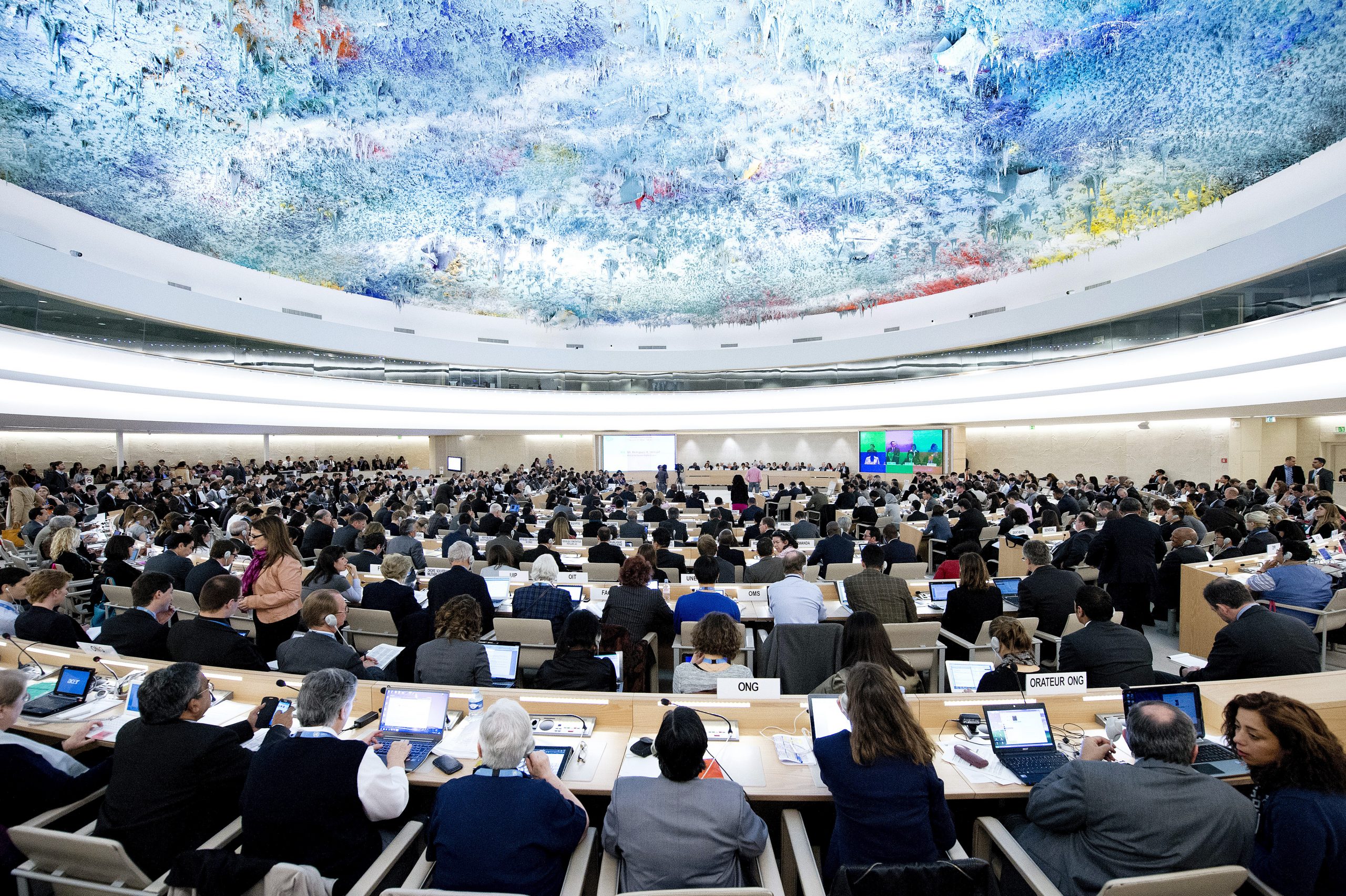Civil society groups welcomed significant outcomes of the Human Rights Council’s 37th session, but regretted the Council’s continued failure to address serious human rights violations in a number of countries, such as Cambodia, Philippines, Turkey, Egypt, Libya, Bahrain and China.
In delivering a joint statement, ISHR, DefendDefenders, the Global Initiative for Economic, Social & Cultural Rights, CIVICUS, International Commission of Jurists, FIDH, Conectas Direitos Humanos, Human Rights House Foundation, Amnesty International, International Lesbian and Gay Association, Human Rights Watch, and FORUM-ASIA, welcomed the adoption of the resolution on the promotion and protection of human rights and the implementation of the 2030 Agenda for Sustainable Development, particularly in reaffirming that all approaches to development must comply with the State’s international human rights obligations.
The organisations highlighted that “cooperation and dialogue” are important for the promotion and protection of human rights and that States should fully cooperate with the Council and its mechanisms, and ensure that all stakeholders are able to cooperate and engage with them without fear of reprisals.
“We must now be vigilant to ensure that the resolution on Mutually Beneficial Cooperation, which is lacking in balance, does not undermine other important parts of the Council’s mandate: to address human rights violations and respond promptly to human rights emergencies in specific countries” stressed Salma El Hosseiny, ISHR’s Human Rights Council Advocate.
The organisations, having long supported the resolution on “protection of human rights while countering terrorism”, expressed their appreciation to the efforts that led to the end of the separate and deeply flawed initiative on “the effects of terrorism on the enjoyment of human rights”. They called on the Council to ensure that future versions of the “terrorism and human rights” resolution address the relevant issues exclusively and comprehensively from the perspective of the effective protection of human rights.
The organisations welcomed the joint statement on Cambodia by over 40 States calling for further action if the situation does not improve in the lead up to the elections and for a briefing by the High Commissioner before the next Council session. However, they expressed their regret over the failure of the Council to take meaningful action to address the alarming situation on the ground.
The organisations also expressed their regret at the Council’s failure to establish a dedicated monitoring and reporting mechanism on Libya, given the gravity of the human rights situation on the ground and the lack of accountability for crimes under international law.
The 37th session demonstrated that the Council can respond in an agile manner to crises when it adopted a resolution after convening an urgent debate on Eastern Ghouta.
The session also presented steps forward towards accountability with the renewal of the mandate of the Commission on Human Rights in South Sudan, allowing it to continue its vital investigations and identification of perpetrators. The organisations also welcomed the co-sponsorship of the Myanmar resolution by groups of States from all regions, making a joint commitment to address the continuing human rights violations and crimes against humanity in the country and support for the Special Rapporteur and Fact-Finding Mission to fulfill its mandate to establish truth and ensure accountability for perpetrators.
“These developments acknowledge the importance of accountability for serious human rights violations and crimes under international law, which cannot be understated” added El Hosseiny.
The adoption of the resolution on drugs and human rights was welcomed by the organisations as the OHCHR report will provide human rights indicators related to the drug issue that would help in future policies.
The organisations also welcomed the Dutch-led joint statement on strengthening the Council, emphasising the importance of substantive civil society participation in any initiative or process and that the Council must be accessible, effective and protective for human rights defenders and rights holders on the ground. They further called on the Bureau co-facilitators on improving the efficiency and strengthening the Council to closely engage with all Members and Observers of the Council, human rights defenders and civil society organisations not based in Geneva.
Read the full statement here.




